By Tim Rowland
There is the taste of savory chicken salad, the sound of chattering customers, the smell of freshly roasted coffee, the feel of smooth, artisanal soaps, and all of it is good — but on walking into Nori’s Village Market in Saranac Lake, what’s really striking is the color.
Vibrant, emerald green lettuces complement ruby red berries. Scarlett apples, purple cabbage and a rainbow of fresh-cut flowers all but vibrate with intensity. And much of the color is supplied by local producers — bouquets from Little Farmhouse Flowers in Jay, greens from Wild Work Farm in Keene Valley, vegetables from Juniper Hill Farm in Wadhams.
“I think produce is so beautiful, and it is so much fun to make it look beautiful,” said Nori’s produce manager Presley Ransom.
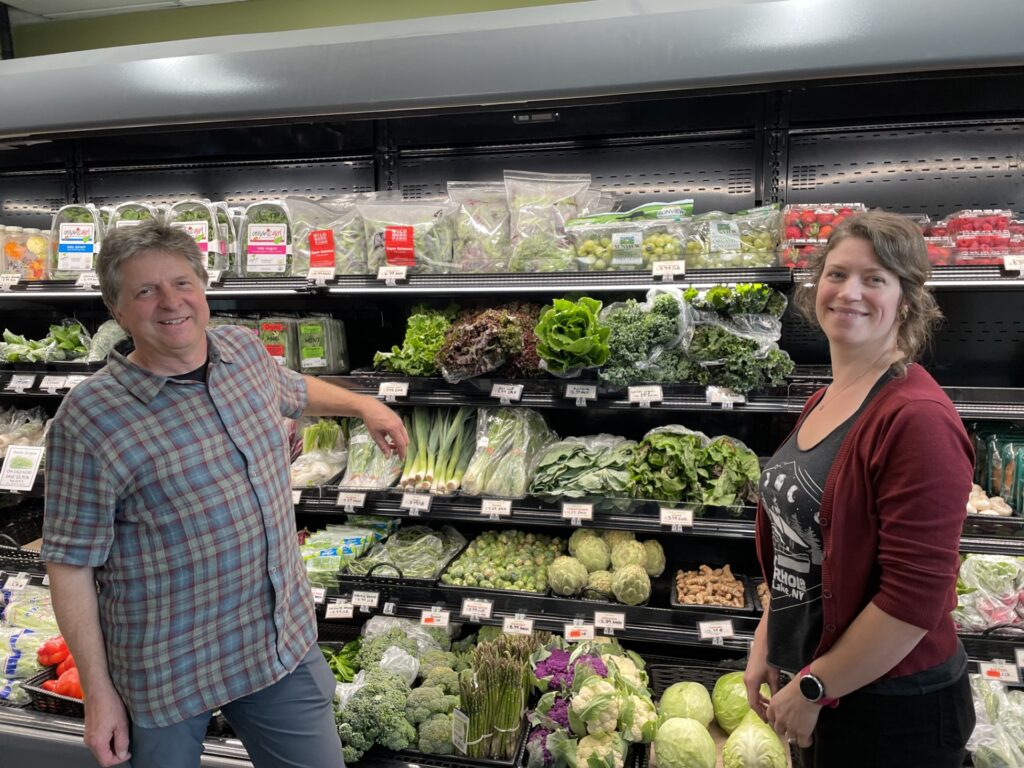
It’s also inspiring to customers who delight not just in the fresh organic products, but also the playful touch of cheddar-colored cauliflower, purple beans or vast varieties of cabbage. “Our produce team gets just as excited as the customers,” Ransom said. “It makes cooking fun instead of a chore.
It’s also scarcely hyperbole to say you could add up every mile every agricultural product on the shelves of Nori’s has traveled and it wouldn’t be a fraction of one transcontinental flight from a Central Valley carrot farm in California.
Not to mention, said Andy Keal, who co-owns Nori’s with Ashley Murray, “Those carrots from Juniper Hill taste so much better than a California carrot.”
Nori’s is both a social and nutritional nerve center for Saranac Lake, part grocery store, part restaurant, part cafe, which arose like an organic phoenix from the site of an old filling station and auto repair shop on the banks of the Saranac River. Its origins date to 1989 when it was born as a small storefront in the Masonic Lodge building on Broadway. It later moved to the former Sears building on Main Street and settled into its current location in 2015. Through the years it’s expanded and upgraded, most recently adding an attractive outdoor seating hardscape and plantings designed and built by landscape architect Clifford Smalley.
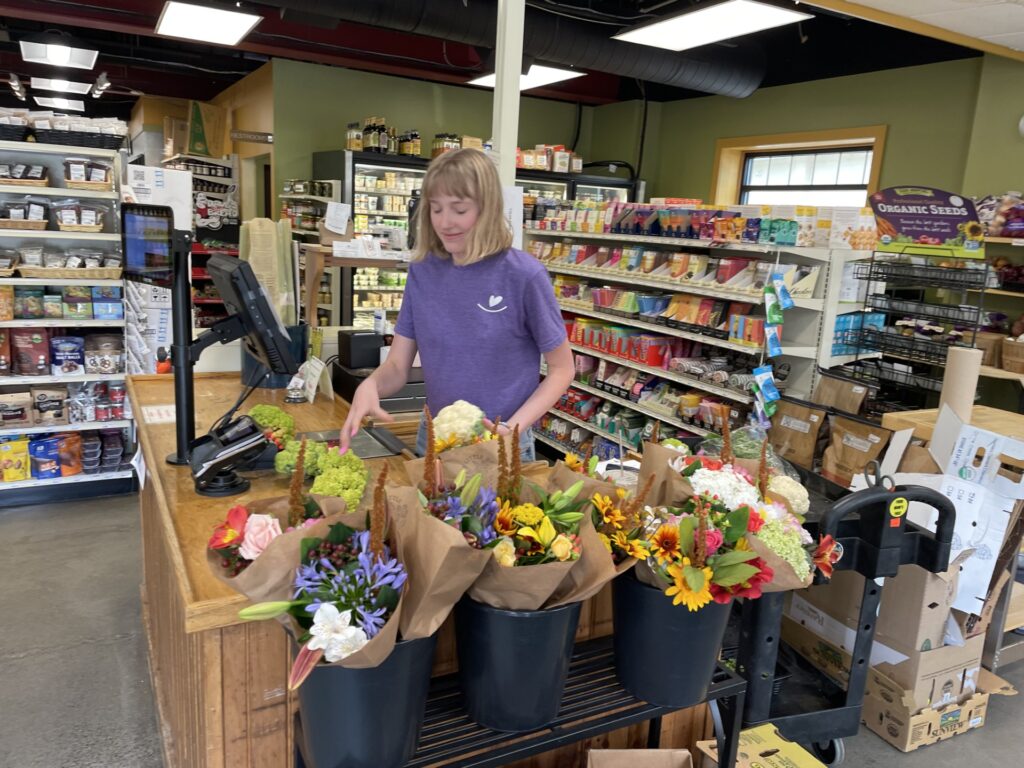
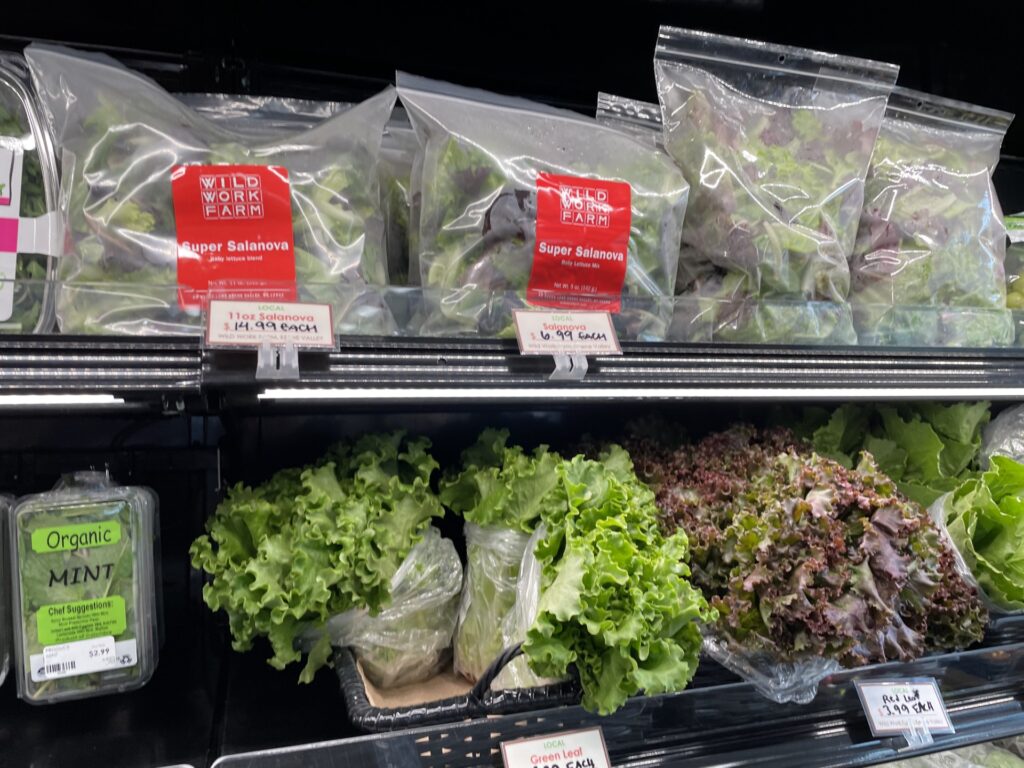
As Nori’s has grown, so has the number of local farms that it can draw from, Murray said.
“We try to spread the wealth,” she said, mostly sticking with established producers, but also giving new producers a chance. Each week store and farm exchange emails, the store what they need, the farm with what they have. “The food is all so fresh when it comes to us,” Murray said. “You can buy organic (at a chain supermarket) but not local organic.”
Locals might be used to the quality of Nori’s produce, but tourists are “amazed,” Keal said. Both groups, as well as second-home owners, are represented in a diverse clientele that appreciate quality produce, meats, cheeses and other local and regional products.
“We spend a lot of time and energy maintaining the produce department,” Murray said. “We have a dedicated produce team that works hard.”
From a producer’s perspective, Nori’s is a godsend. It currently works with seven local farms, along with a distributor who works with many New York State farms year-round, “so we have access to dozens more throughout the season,” Ransom said. “Our cafe uses local produce, such as apples from Rulf’s, and our kitchen uses salad mix, tomatoes, onions, eggs and various herbs on a regular basis.”
“They move through a lot of volume for us,” said Lissa Goldstein, operator of Wild Work Farm in Keene Valley. Wild Work produces fresh fruits and vegetables for sale at farmers’ markets, through a market share program and to restaurants and wholesale accounts.
Much of its product, including its signature fresh greens, are sold direct to the consumer, increasing the importance of strategically located markets. “Nori’s is really important for us, because we don’t sell in that (Saranac Lake) area and have no other way of reaching customers.”
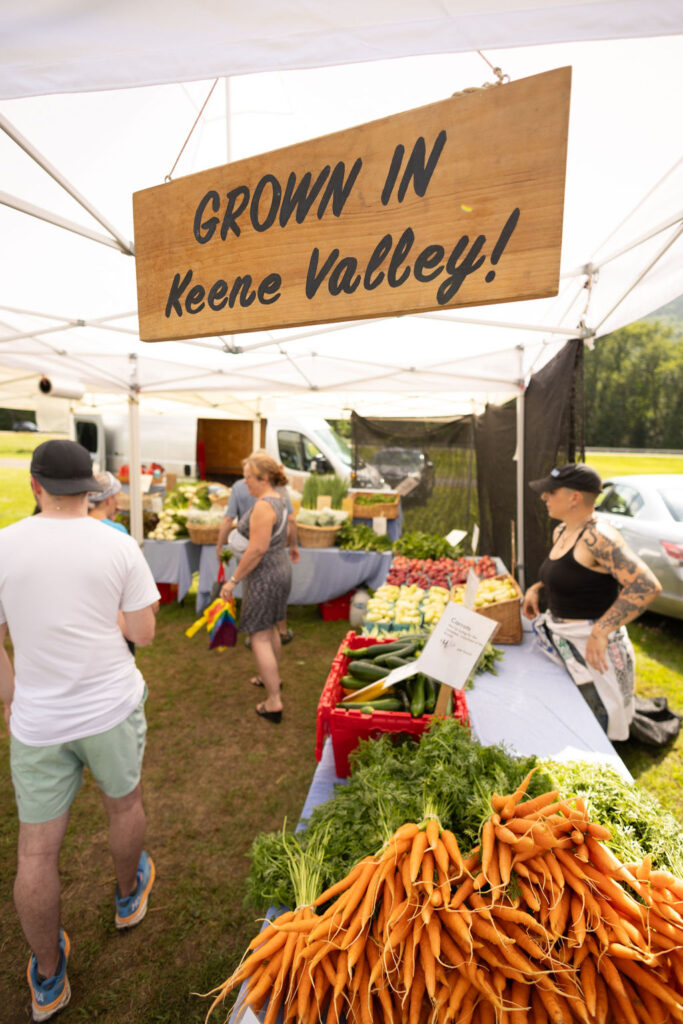
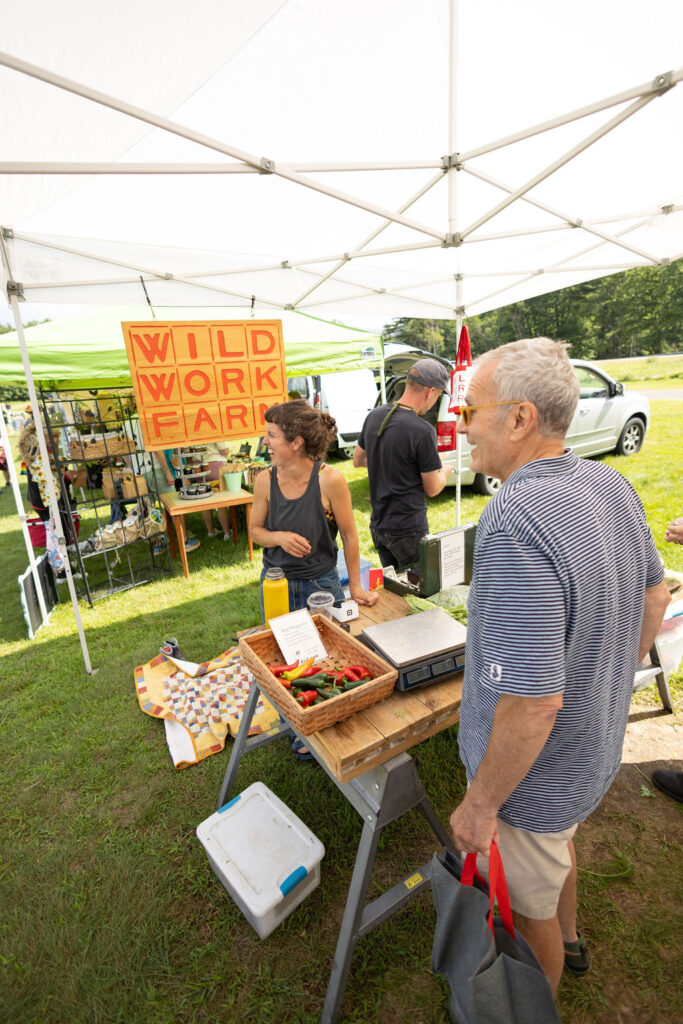
Noris doesn’t just buy locally grown produce, they also buy local meat, eggs, dairy products, maple, honey, fresh flowers, herbal products, and breads. They buy and sell locally grown products year-round, which is a major benefit for local farms during the slower seasons.
“Markets like Nori’s can have a big effect,” said Tyler Eaton, owner of Blue Pepper Farm in Jay.
“It’s important to have that support.” Collectively, retail outlets like Nori’s, Cedar Run and Sugar House Creamery can make up a meaningful chunk of sales, Eaton said.
Blue Pepper, which Eaton runs with his wife Shannon, delivers to Nori’s on Saranac Farmer’ Market days, making the trip more cost effective — and feeding the personal relationship that Nori’s likes to maintain with its producers.
“We know our delivery drivers and producers and it’s such a friendly relationship,” Ransom said. “We’re going back and forth with them all the time, telling them what we’re making and hearing what they have.”
Small retailers like Noris also play an important role in providing year-round access to locally grown food for people who live and visit in rural Adirondack communities. Nori’s accepts SNAP benefits and is also open 7 days a week year-round.
Resources such as the Adirondack Harvest Wholesale Database can help grocers and retailers connect with local farms that sell wholesale.
This article was written with grant funding through CVNHP and NEIWPCC.
